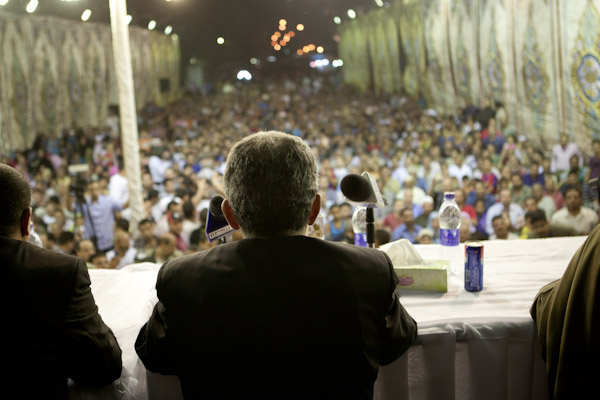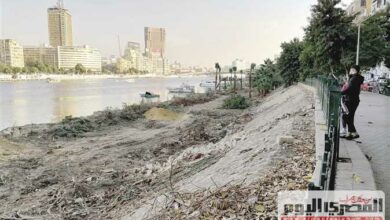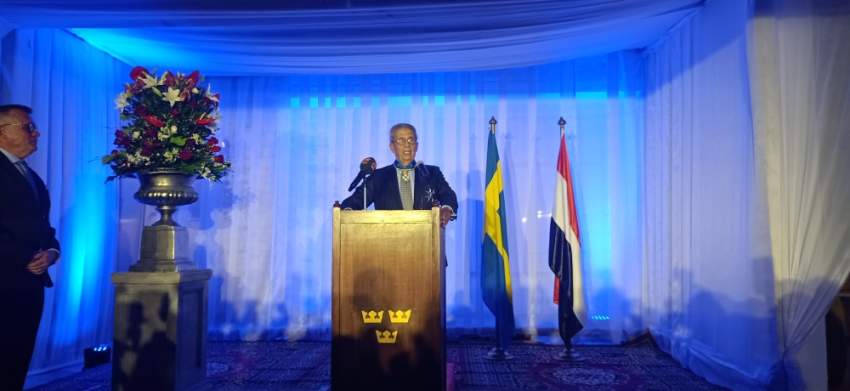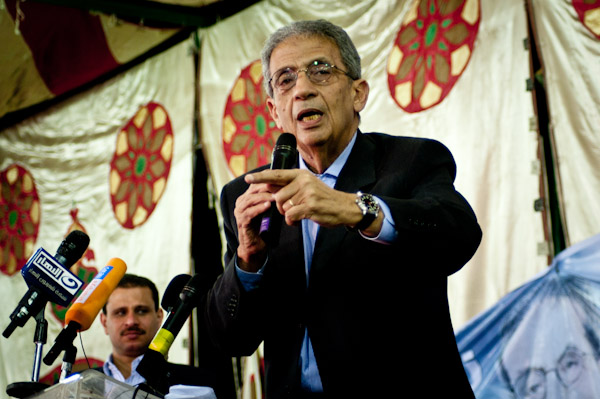
Fares Teama stands out slightly on the Amr Moussa campaign bus. Unlike the rest of the campaign team, decked out in business suits and khakis, Hajj Fares, as he is known on the campaign trail, wears a blue galabeya and a mustache as he rides along with the presidential candidate from campaign stop to campaign stop.
As he smokes a cigarette, the vegetable merchant-turned-presidential campaign activist explains to Egypt Independent why he has decided to leave his son in charge of the business while he tours with Moussa for over a year.
“The whole world knows who Amr Moussa is and he knows Egypt’s worth,” says the 44-year-old father of seven who originally comes from Monufiya but currently lives in Matareya, Cairo.
Moussa, a former foreign minister in the deposed regime, is a frontrunner in the election set to begin on 23 and 24 May. His political experience and promises of prosperity give him wide appeal, but the way the message is delivered also helps.
Moussa’s campaign is reaching out to a diverse base of supporters by trying to portray a candidate with cross-sectional appeal.
While the campaign includes politicians and college professors who inspire confidence in their professionalism, it also includes members of certain marginalized sectors, which are more likely to follow one of their own than to respond to a Cairene campaigner.
According to Ahmed Mokdamy, a media coordinator in the campaign, the campaign includes Bedouin and Nubian representatives and workers. As there is high level of mistrust toward politicians in these sectors due to years of marginalization, insider campaigners go a long way.
Members of hardcore football fan groups, ultras, also contribute to the campaign, informally, by traveling with it to protect the rallies.
“We have to communicate with all the classes of society, and this diversity among the volunteers enables communication with each individual in the language he understands,” Ashraf Swelam, a senior political advisor to the Moussa campaign, told Egypt Independent at the campaign’s central office in Dokki.
The campaign’s coordinators across the country are varied depending on the nature of the place, from white-collar employees to farmers and merchants, Swelam says.
Moussa has visited each of Egypt’s 27 governorates during his campaign, some more than once. The campaign also has at least one office in every governorate, which are financially and operationally independent from the central campaign.
College students have also been generous with their contribution to Moussa’s campaign. Many colleges around the country have formed their own parallel Moussa campaigns whose members show up to his rallies in their own busses. Sweilam says that while most of these college campaigns started on their own initiative, they now coordinate their efforts with the respective governorate’s campaign office.
The decentralization of the campaign, in addition to Moussa’s extensive touring, has allowed the campaign to make a good use of Moussa enthusiasts around the country and to incorporate their efforts into the central campaign.
Hajj Fares started showing his support for Moussa by sending out text messages to his friends and setting up banners in his area before he established contact with the campaign in a rally. The campaign now benefits from Hajj Fares’ contacts around the country, which he has made as a merchant, by having him travel to governorates ahead of rallies, or call his acquaintances if he is unable to travel, to gather support.
Except for a few senior campaign members who quit their jobs to work on the campaign full time, Swelam says most campaign members are volunteers.
Moussa’s ability to attract traditionally non-politicized sectors to his campaign is not the result of chance. While drafting his platform, the campaign put significant weight on what people want, as explained by Swelam, who is also the chief editor of Moussa’s platform.
Mohamed Morsy, the Muslim Brotherhood candidate, positions himself as the choice for the group supporters and other Islamists, while Abdel Moneim Abouel Fotouh, another frontrunner, tries to balance an image that’s appealing to liberals, Salafis and revolutionaries. Swelam explains that, unlike most candidates, Moussa’s campaign targets everyone.
“Our constituency is Egypt,” Swelam says.
However, one sector still opposes Moussa’s candidacy: some supporters of the revolution denounce Moussa as a remnant of the former regime and say his election would be treason against the revolution.
When Egypt Independent asked Swelam how the campaign dealt with this, his short answer was, “We don’t.”
Realizing that Moussa can make it without the votes of those who consider him feloul, a word used to describe members of the Mubarak regime, the campaign doesn’t waste its time trying to change their minds and instead focuses on the majority, which it believes cares about its interests more than Moussa’s past.
“Since March 2011, not a single poll has not shown Moussa leading the pack, so it’s obvious that the feloul issue is a concern of a minority. We totally dismiss them,” says Swelam.




